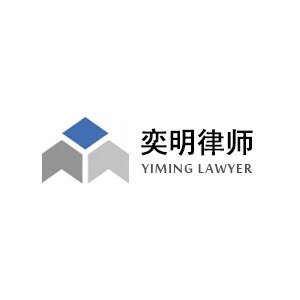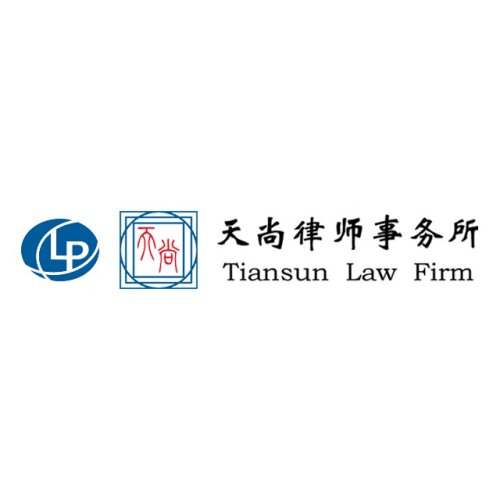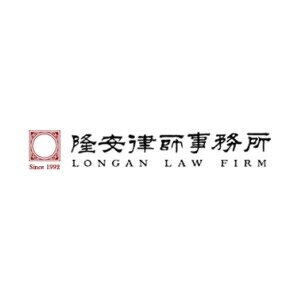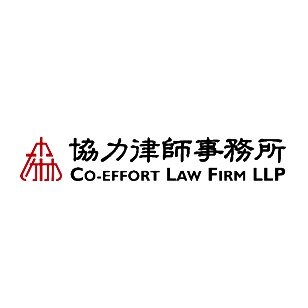Best Wrongful Termination Lawyers in Beijing
Share your needs with us, get contacted by law firms.
Free. Takes 2 min.
List of the best lawyers in Beijing, China
About Wrongful Termination Law in Beijing, China
In Beijing, China, employment is typically governed by a set of rules that protect both employers and employees. Wrongful termination law in this jurisdiction refers to the legal framework that defines the conditions under which the termination of an employee is considered unlawful. The law primarily aims to protect workers from being dismissed without proper cause or in violation of the terms of their employment contract, as well as from discrimination and retaliation. Factors such as discrimination, retaliation, non-compliance with the contract terms, and violation of labor laws can render a termination wrongful in Beijing.
Why You May Need a Lawyer
There are several situations where you might require legal assistance regarding wrongful termination. For example, if you believe you have been terminated due to discrimination based on gender, race, or religion, or in retaliation for whistleblowing or participating in legal proceedings against the company, a lawyer can help navigate the legal complexities. Additionally, if there is a breach of your employment contract, or if mandatory legal processes were not followed by the employer during termination, a lawyer can help you understand your rights and represent your interests in possible legal actions.
Local Laws Overview
The key local laws regarding wrongful termination in Beijing, China, fall under the broader scope of the Chinese Labor Law and the Labor Contract Law. These laws offer protection to employees by dictating the legal grounds for terminating a contract and procedures that must be adhered to by employers. Notable provisions state that employees are entitled to severance pay under certain conditions, require a notice period before termination, and set forth specific reasons for lawful dismissal, such as misconduct or incompetence. They also protect employees against unlawful dismissal by outlining punitive actions employers may face should they wrongfully terminate an employee.
Frequently Asked Questions
What constitutes wrongful termination in Beijing?
Wrongful termination occurs when an employer dismisses an employee without just cause, in violation of the terms of the employment contract or in contravention of labor laws, which include cases of discrimination or lack of proper notice.
Can I be fired without a reason in Beijing?
In Beijing, employers must align with legal stipulations when terminating an employee. There must be a valid reason such as redundancy or failure to meet job requirements, and the employer is usually required to provide notice and potentially severance pay.
What is the standard notice period for termination?
Unless stated otherwise in your contract, the standard notice period is generally 30 days, or one month's salary can be paid in lieu of notice.
Am I entitled to severance pay if I am wrongfully terminated?
If your termination is deemed illegal under Chinese labor law, you may be entitled to severance pay, and in some cases reinstatement to your job. The specific conditions for severance depend on your contract and the circumstances of your dismissal.
How do I prove wrongful termination?
Proving wrongful termination typically requires showing that your employer has not followed legal protocols, violated contract terms, or terminated you for unlawful reasons. Evidence, such as communications, performance reviews, and witness statements, can be critical.
Can my employer terminate me for taking sick leave?
Employees in Beijing are generally protected from being terminated for taking lawful sick leave. However, extended absence due to illness may fall under different regulations which could potentially result in lawful termination.
What if I am a foreign worker in Beijing-do the same rules apply?
Employment laws in Beijing apply to both local and foreign workers. However, visa conditions and employment regulations specific to foreign workers must also be considered.
How long do I have to make a wrongful termination claim?
It is advisable to make a claim as soon as possible. The statute of limitations for labor disputes in China is generally one year from the date you become aware of the violation of rights.
Will I need to go to court over a wrongful termination claim?
Not necessarily. Some wrongful termination disputes can be settled through negotiations or mediation. However, some might go to arbitration or court if the parties cannot reach an agreement.
Can I negotiate a settlement with my employer for wrongful termination?
Yes, negotiation is often the first step. However, it is usually advisable to consult with a lawyer before engaging in settlement conversations to ensure your interests are adequately represented and protected.
Additional Resources
For those seeking advice on wrongful termination, the Beijing Labor and Social Security Bureau serves as a helpful governmental resource. Additionally, the All-China Federation of Trade Unions (ACFTU) can provide support and guidance. It is also beneficial to consult officially published legal texts on Chinese Labor Law and the Labor Contract Law for a comprehensive understanding of your rights.
Next Steps
If you suspect that you have been wrongfully terminated, the first step is to gather all relevant documentation such as your employment contract, communication records, and any evidence related to your dismissal. Then, consult with a lawyer specializing in labor law to assess the merits of your case. You may choose to negotiate with your employer or proceed with legal action, depending on your situation. Be mindful of deadlines for filing complaints or claims, and seek support from official resources whenever possible.
Lawzana helps you find the best lawyers and law firms in Beijing through a curated and pre-screened list of qualified legal professionals. Our platform offers rankings and detailed profiles of attorneys and law firms, allowing you to compare based on practice areas, including Wrongful Termination, experience, and client feedback.
Each profile includes a description of the firm's areas of practice, client reviews, team members and partners, year of establishment, spoken languages, office locations, contact information, social media presence, and any published articles or resources. Most firms on our platform speak English and are experienced in both local and international legal matters.
Get a quote from top-rated law firms in Beijing, China — quickly, securely, and without unnecessary hassle.
Disclaimer:
The information provided on this page is for general informational purposes only and does not constitute legal advice. While we strive to ensure the accuracy and relevance of the content, legal information may change over time, and interpretations of the law can vary. You should always consult with a qualified legal professional for advice specific to your situation.
We disclaim all liability for actions taken or not taken based on the content of this page. If you believe any information is incorrect or outdated, please contact us, and we will review and update it where appropriate.

















